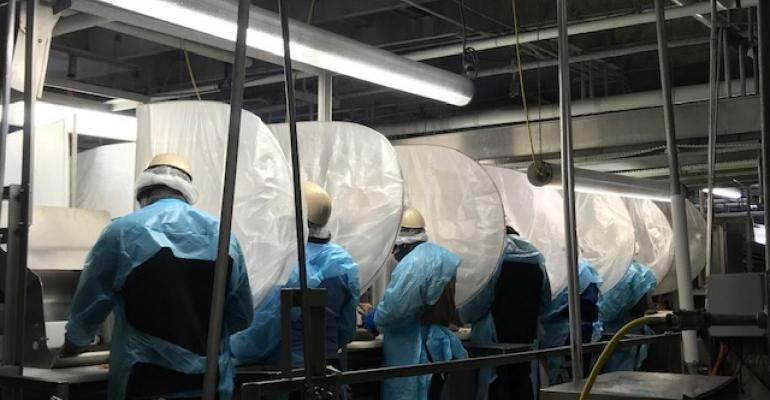Recent actions in some states have led to the complete closure of large meat processing facilities, leading President Donald Trump to sign an Executive Order (EO) providing the authority to ensure the continued supply of beef, pork and poultry to U.S. consumers.
Under the order, the U.S. Department of Agriculture is directed to ensure that America’s meat and poultry processors continue operations uninterrupted to the maximum extent possible. To ensure worker safety, these processors will continue to follow the latest guidelines from the Centers for Disease Control & Prevention (CDC) and the Occupational Safety & Health Administration (OSHA). Unfortunately, a number of America’s large meat processors and their workers have been affected by outbreaks of the novel coronavirus (COVID-19).
“Such closures threaten the continued functioning of the national meat and poultry supply chain, undermining critical infrastructure during the national emergency. Given the high volume of meat and poultry processed by many facilities, any unnecessary closures can quickly have a large effect on the food supply chain,” the EO said. “For example, closure of a single large beef processing facility can result in the loss of over 10 million individual servings of beef in a single day. Similarly, under established supply chains, closure of a single meat or poultry processing facility can severely disrupt the supply of protein to an entire grocery store chain.”
Failure to process livestock could force millions of pounds of meat to disappear from the market, potentially leading to long-term disruptions in the nation's supply chain, a fact sheet said from the White House explained. Similarly, the closure of a single plant can eliminate more than 80% of the supply of a particular meat product — like ground beef — to an entire grocery store chain.
To combat this crisis and ensure the adequate availability of food for the American people, it is vital that these processors are able to remain operating at this critical moment while also taking steps to prevent the spread of COVID-19 in their facilities.
Under the EO and the authority of the Defense Production Act, the USDA will work with meat processing plants to affirm that they will operate in accordance with the CDC and OSHA guidance and then work with state and local officials to ensure that these plants are allowed to operate to produce the meat protein that Americans need. USDA will continue to work with CDC, OSHA, the Food & Drug Administration and state and local officials to ensure that facilities implementing this guidance to keep employees safe can continue operating.
“Maintaining the health and safety of these heroic employees in order to ensure that these critical facilities can continue operating is paramount," Agriculture Secretary Sonny Perdue said. "I also want to thank the companies who are doing their best to keep their workforce safe as well as keeping our food supply sustained. USDA will continue to work with its partners across the federal government to ensure employee safety to maintain this essential industry.”
National Chicken Council (NCC) president Mike Brown said, “While doing everything we can to keep employees safe and healthy, the biggest challenge has been inconsistencies among the states and many localities in enforcing CDC guidelines in plants that add to confusion and can lead to unnecessary shutdowns.”
Brown added, “This patchwork approach is posing grave risk to the supply chain and threatening great disruption to NCC member companies. There must be a uniform approach across all states, and we are hopeful that [the] announcement is a good first step in achieving that goal. NCC is urging states to immediately adopt CDC, OSHA and USDA guidelines for a uniform approach to first keep workers safe and keep Americans fed.”
The North American Meat Institute said the industry has and will continue to implement the CDC and OSHA guidance issued Sunday. These measures include: testing, temperature checks, face coverings, social distancing of employees where possible and much more. To support employees, many Meat Institute members are raising pay, offering bonuses, providing paid sick leave and increasing health benefits.
“The safety of the heroic men and women working in the meat and poultry industry is the first priority, and as it is assured, facilities should be allowed to reopen,” Meat Institute president and CEO Julie Anna Potts said.
Gary Mickelson, spokesman for Tyson, said in response to the EO, “We appreciate the Administration’s efforts to help the food supply chain, and we remain committed to protecting the safety of our team members as we continue our efforts to keep feeding American families. The safety of our team members will remain our top priority as we work with the USDA on next steps.”
Mickelson said the company has been screening worker temperatures, requiring protective face coverings and conducting additional cleaning and sanitizing. Tyson also has implemented social distancing measures, such as workstation dividers and more breakroom space.
For our most up-to-date coverage, visit the coronavirus homepage.

This article originally appeared on Feedstuffs, a Supermarket News sister website.





